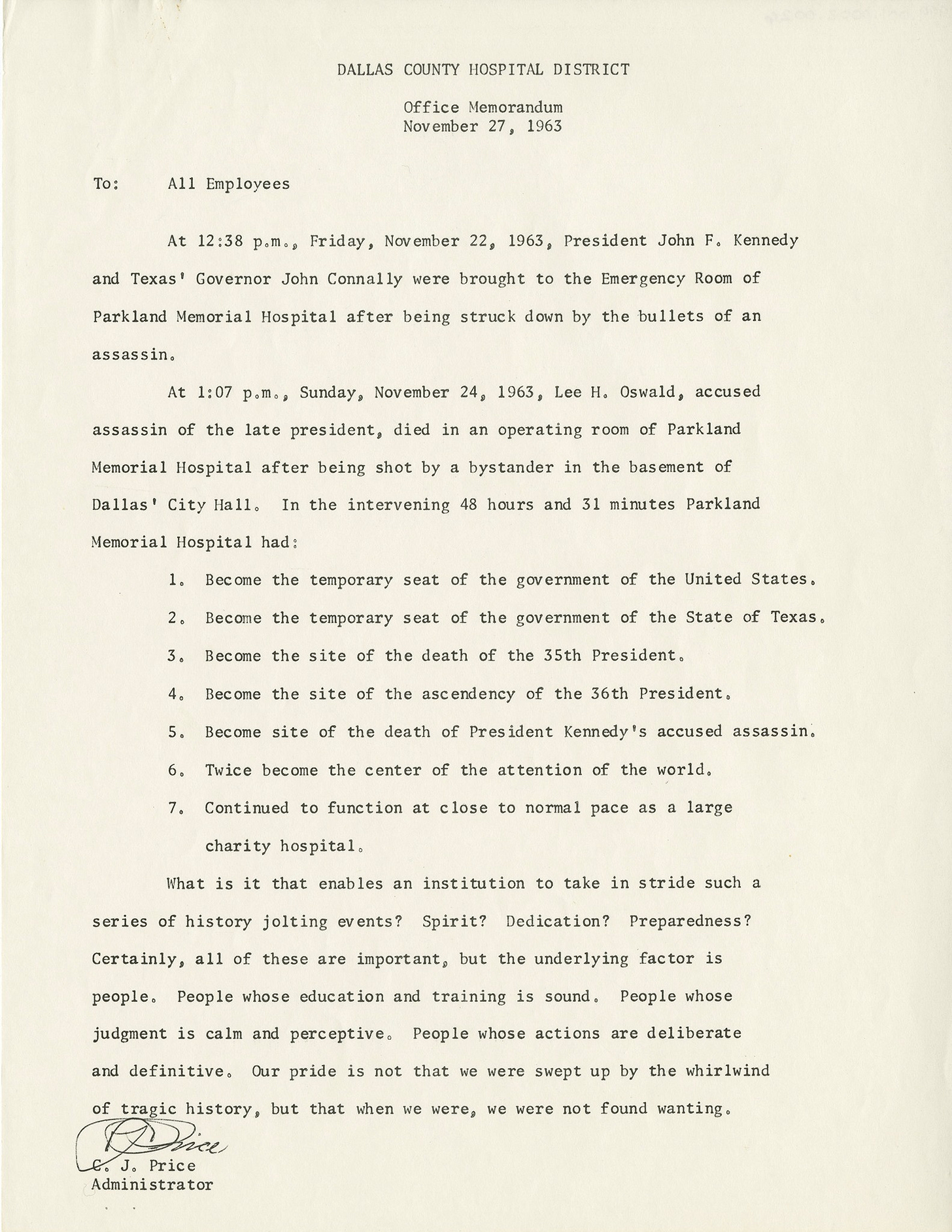We were not found wanting
Days after the death of JFK, a proud hospital administrator writes to his staff
On November 22nd of 1963, as he travelled by motorcade through Dealey Plaza in downtown Dallas, the 35th President of the United States, John F. Kennedy, was killed by the two bullets of a sniper hiding on the sixth floor of a nearby building; one of Kennedy’s travelling companions, Governor of Texas Jack Connally, was also injured. Five days later, Charles Jack Price, then-Administrator of Parkland Memorial Hospital in Dallas, proudly wrote to all staff and made clear his appreciation for their professional conduct over the past week—a period during which, as the world’s population looked on in abject horror, the hospital had dealt with the deaths of two people in particular on its premises: John F. Kennedy, and his assassin, Lee Harvey Oswald.
November 27, 1963
To: All Employees
At 12:38 p.m., Friday, November 22, 1963, President John F. Kennedy and Texas’ Governor John Connally were brought to the Emergency Room of Parkland Memorial Hospital after being struck down by the bullets of an assassin.
At 1:07 p.m., Sunday, November 24, 1963, Lee. H. Oswald, accused assassin of the late president, died in an operating room of Parkland Memorial Hospital after being shot by a bystander in the basement of Dallas’ City Hall. In the intervening 48 hours and 31 minutes Parkland Memorial Hospital had:
Become the temporary seat of the government of the United States.
Become the temporary seat of the government of the State of Texas.
Become the site of the death of the 35th President.
Become the site of the ascendency of the 36th President.
Become site of the death of President Kennedy’s accused assassin.
Twice become the center of the attention of the world.
Continued to function at close to normal pace as a large charity hospital.
What is it that enables an institution to take in stride such a series of history jolting events? Spirit? Dedication? Preparedness? Certainly, all of these are important, but the underlying factor is people. People whose education and training is sound. People whose judgement is calm and perceptive. People whose actions are deliberate and definitive. Our pride is not that we were swept up by the whirlwind of tragic history, but that when we were, we were not found wanting.
C. J. Price
Administrator
The above letter is taken from the second Letters of Note book, the final few special editions of which can be purchased here.




Thank you for focusing on this topic today. 🙏🏼❤️
So poignant. Heartbreaking. Thanks so much for sharing it. I love your newsletter. Always something interesting and unknown to me.